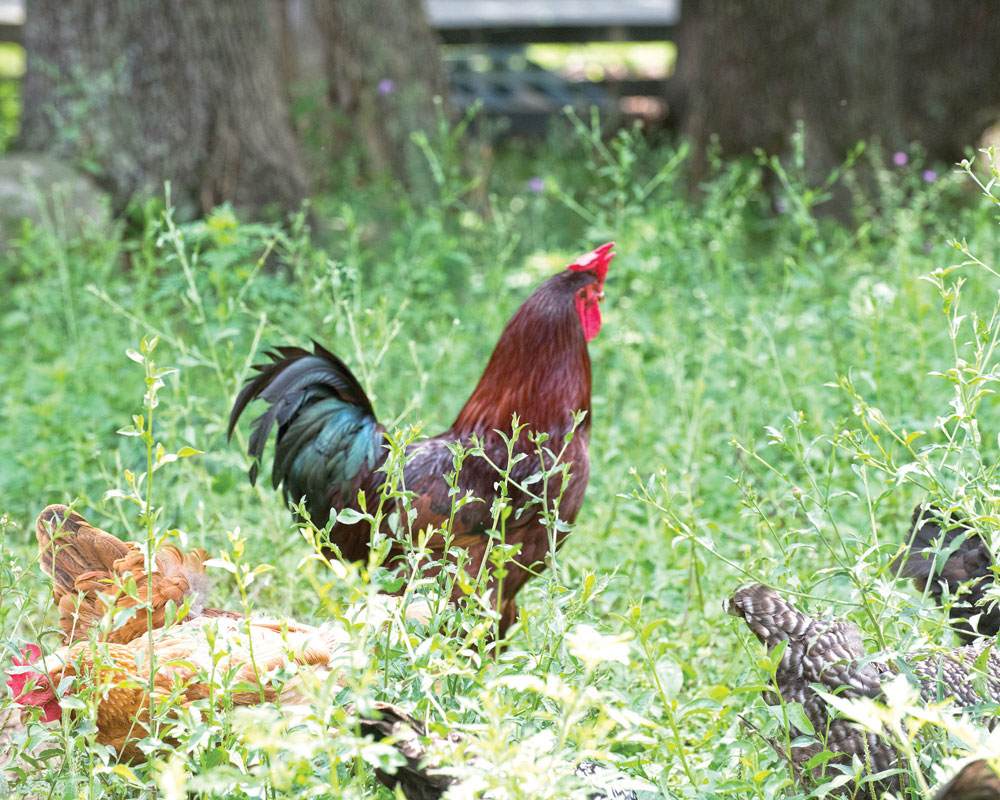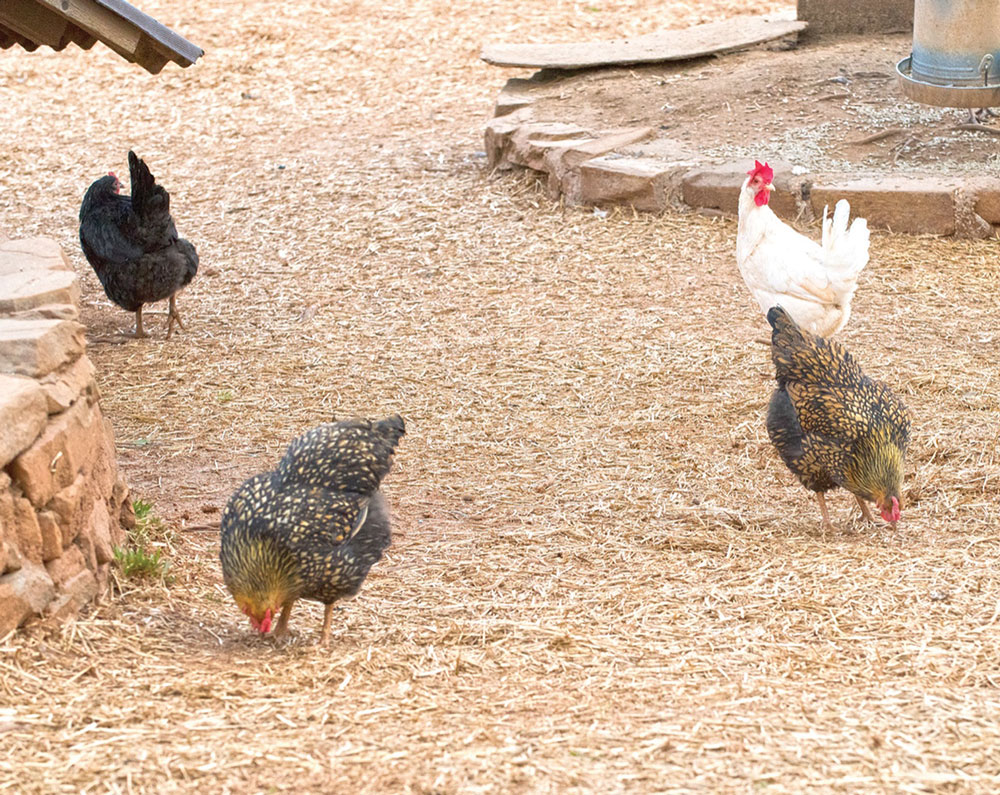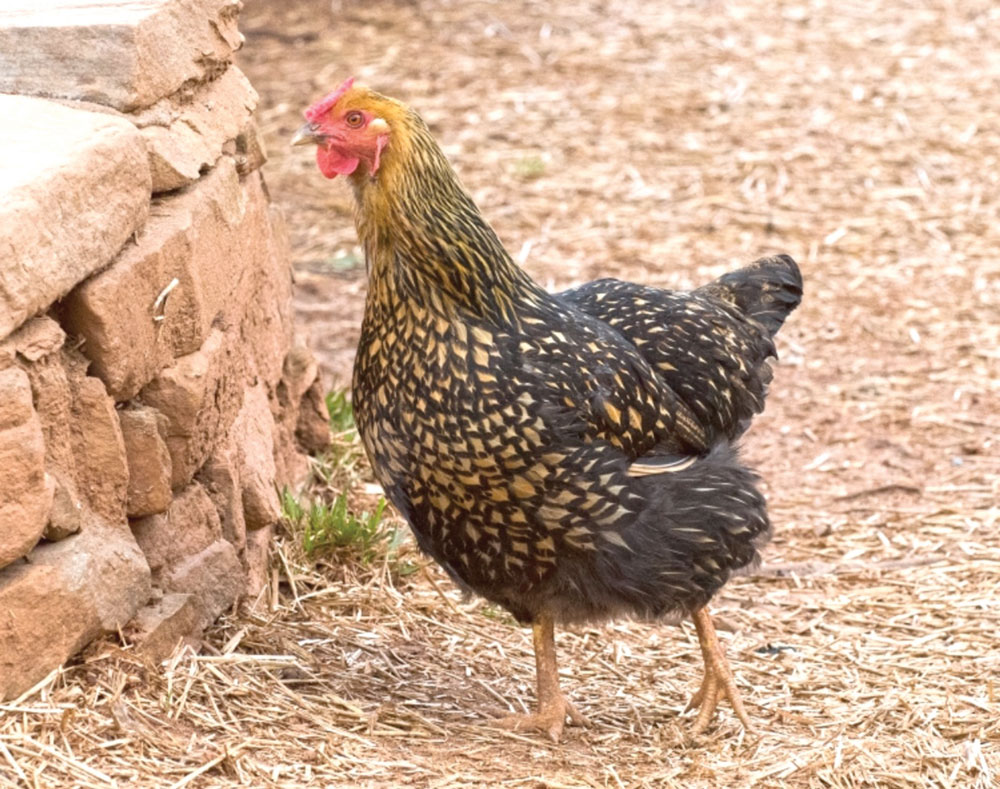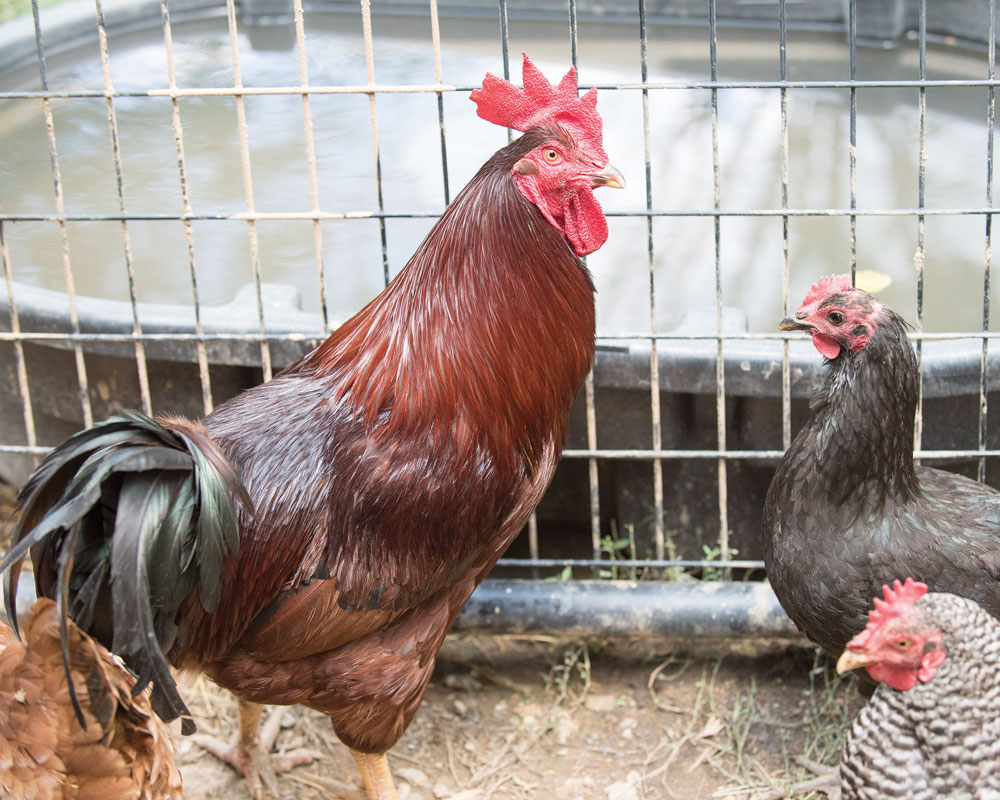Suburban Farming: Backyard Chickens Come Home to Roost

By Chelsea Rose Moore | Photos by Joanne Maisano
Fledging chicken farmers are getting their wings across Northern Virginia.If you’ve noticed an increase in egg sales from your neighbors, it’s not just you. Raising chickens has been growing in popularity over the past several years. Local families are connecting more deeply with nature and honoring Loudoun’s farming heritage by developing a firm grasp on how their food is being raised.
The region is mixed with farmers raising chickens for decades, to young families becoming fledgling chicken farmers. But regardless of the number of years they’ve farmed, every local chicken farmer carries a deep love for the birds and the land.
Beth Cole, a Clarke County mom of two kids, has been keeping chickens for three years. “I wanted fresh eggs and compost, which is really good for my garden,” she said. “I wanted to know what was going into my chickens and what wasn’t. I wanted to teach my kids how to take care of things. It’s been really educational for our kids, teaching them about life cycles and about responsibility.”

Facebook groups like “Lovettsville Chicken Owners” and “Western Loudoun Chicken Chat” have provided support for chicken owners. Cole said she has been grateful for these resources. If something unusual occurs with the chickens, she can post a photo in the group, and dozens of chicken owners will chime in with advice and feedback. Other times, a person will simply share a funny story with other chicken owners who can relate. Questions in the groups range from ideas on keeping chickens cool during extreme summer temperatures to recommendations on best veterinarians for chickens.
Keeping chickens in Clarke County has been a wonderful hobby for Cole and her family. However, across the mountain in Loudoun County, some farmers have made chicken raising their life’s passion. Dorothy Butler-Landes has been keeping chickens since the 90s. Today, she is a 4- H Poultry Club leader and runs a small poultry farm in Hillsboro with her husband. Her love for chickens started as a child, but in recent years she has noticed an increase in people keeping chickens.

“I think there’s a real push to get back to the way things were: raising your own food and getting to know where your food comes from,” she said, “Chickens have really unique personalities. Dogs, cats, and birds are not the only [pets] with unique personalities. [With chickens], you have this pet you love and care for, and they feed you at the same time. It’s a unique relationship: you’re feeding them, and they are feeding you. It’s an easy way to be in touch with where your food is coming from.”
As a 4-H Poultry Club leader, one of her biggest goals is education and outreach. Her group is loaning Purcellville’s Southern States an educational display on eggs from various poultry breeds, from peacocks to quails. The 4-H group designed the display and will be showcasing it for a few weeks at Southern States.
One of Butler-Landes’ favorite things about the chicken community is its willingness to embrace new chicken owners. “As a kid, I had to go to the library to research what I was doing. Facebook is just such a wonderful resource. You ask a question and there’s an immediate response. Everybody is really helpful. People want [other] people to keep chickens.”
WHERE YOUR FOOD COMES FROM
When Erica Scott and her husband moved their family from Leesburg to Lincoln, they wanted to raise their children in a more rural area. Once they moved, they found themselves raising chickens, too. She has close to 40 chickens now and runs the “Western Loudoun Chicken Chat” Facebook group, which has grown to over 150 members since its inception two months ago.
As she has seen an uptick in backyard chicken ownership over the past few years, she has noticed women are primarily the chicken owners and caretakers. “It’s not a coincidence why women really love to raise chickens,” she said, “There’s a natural mothering component and a natural care taking component to it. There’s a sense of accomplishment, in terms of raising these birds and raising your own food.”

Having fresh eggs has been one of Scott’s favorite parts of chicken ownership. She gifts eggs to teachers and bus drivers and loves the taste of farm-fresh eggs. Grocery store labeling can be deceptive, she said. Even if the egg carton lists “pasture-raised” or “free-range,” there are still loopholes for factory farmers. These terms can mean that chickens have a one-foot-by-one-foot space to move inside the coop. It does not mean that they can roam across pastures and forage for bugs and other food.
“Chickens that lay a lot have weakened calcium and iron content,” Scott said, commenting on the conditions of commercial egg farmers. “They don’t see the sun to get Vitamin D and they don’t get to eat worms and bugs. If you look at store- bought eggs, you’ll notice the yolk is very light, pale yellow. The farm fresh egg yolks are typically bright orange, which show that the chickens are eating well. The protein component of a farm-raised yolk compared to store-bought…there is a real, huge difference.”
Jennifer Damon Ricciardi lives in Catharpin in Prince William County about a mile from Loudoun’s border. She breeds heritage and rare breed poultry and water fowl on her five-acre farm, Loose Goose Farmstead. She is dedicated to preserving these threatened breeds, and has selected breeds from the livestock conservancy threatened list.
The eggs she collects from her hens are a rainbow of colors: blue, white, pink, green, brown. The difference between commercial and farm-raised eggs is drastic, she noted, even in the way it affects a consumer’s health. “The supermarket eggs can be up to 60 days old,” she said, “The farmer has up to 30 days to get it packaged. Then once it’s packaged, they have up to 30 days to sell it commercially. The [factory-farmed] chickens don’t get to eat from nature, which affects the taste of the eggs. Chickens are naturally bug-eaters and foragers. That adds to the taste and quality of the eggs they are producing.”
LITTLE FARMERS
Michaela Van Mecl has 20 chickens in her Round Hill backyard, known as Lost Acre Homestead. Her interest in chickens was birthed from a desire to focus on sustainability. With 20 chickens, she gathers anywhere from 60 to 80 eggs per week, enabling her family to eat what they need and sell the rest. She keeps a cooler on her porch for buyers interested in local egg pickups.

“I think people are getting really tired of paying top dollar for really crappy products at the grocery store,” she said, “Chicken culture is booming. That’s why people live out here, especially in Western Loudoun, to be closer to [agriculture]. These towns used to be primarily agriculturally based.” She believes it’s important to honor Loudoun’s agricultural past through backyard farming and raising one’s children to be responsible stewards of animals and nature. Involving children is a great learning experience for them. “[Kids] enjoy all aspects of being little chicken farmers,” she said.
Ready to become a backyard chicken farmer? Contact your county to learn about zoning ordinances and neighborhood association regulations. Join local Facebook groups for support and advice. Most towns and counties have their own Facebook groups for chicken owners. Find “Purcellville Backyard Chickens,” “Lovettsville Chicken Owners,” “Western Loudoun Chicken Chat,” “NOVA Poultry Owners,” and so many others! ML
This article first appeared in the August 2019 issue of Middleburg Life.


